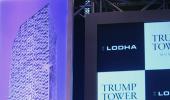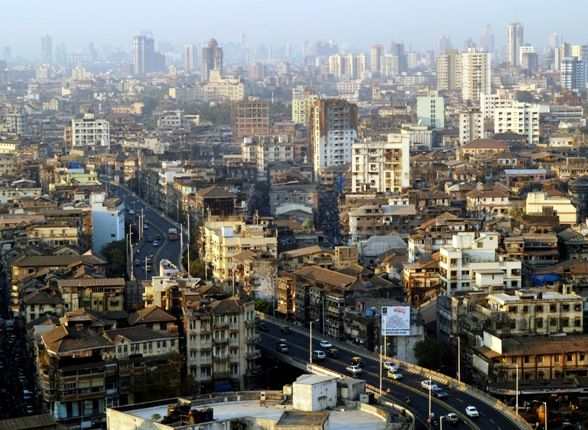
Industrialists Mukesh and Anil Ambani on Friday asked the Centre and the Maharashtra government to expedite infrastructure projects in Mumbai -- stuck in red tape and delayed due to lack of environment clearances -- choking the metropolis.
The Ambanis’ plea gave voice to the frustration of millions of Mumbai citizens, who face massive traffic snarls and overcrowded, unsafe train rides daily.
Here is a status check of some marquee projects in the city:
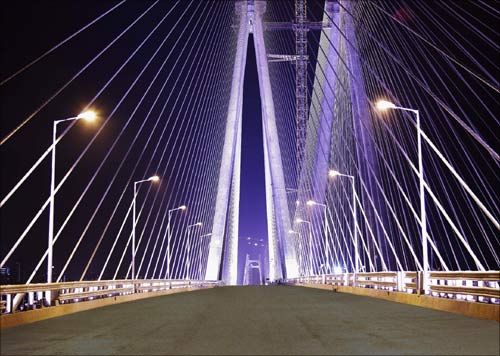
Mumbai Trans Harbour Link
Cost: Rs 11,000 cr (Rs 110 billion)
J R D Tata first conceived the idea of a 22-km sea-link to decongest Mumbai by connecting the mainland with central Mumbai, in the 1970s. The state government initiated the project in 1990.
The first bids were in by 2007.
The Mumbai Metropolitan Region Development Authority rejected bids of the Ambani brothers on technical grounds.
Bids were called for again and five submitted their offers in July-August 2013.
The bids were scrapped again on technical grounds.
MMRDA has now decided to develop the project on its own, with help from the private sector for the construction.
In June last year, the Japanese International Co-operation Agency said it will loan 80 per cent of the project cost. The state expects to launch the development work by 2015-end.
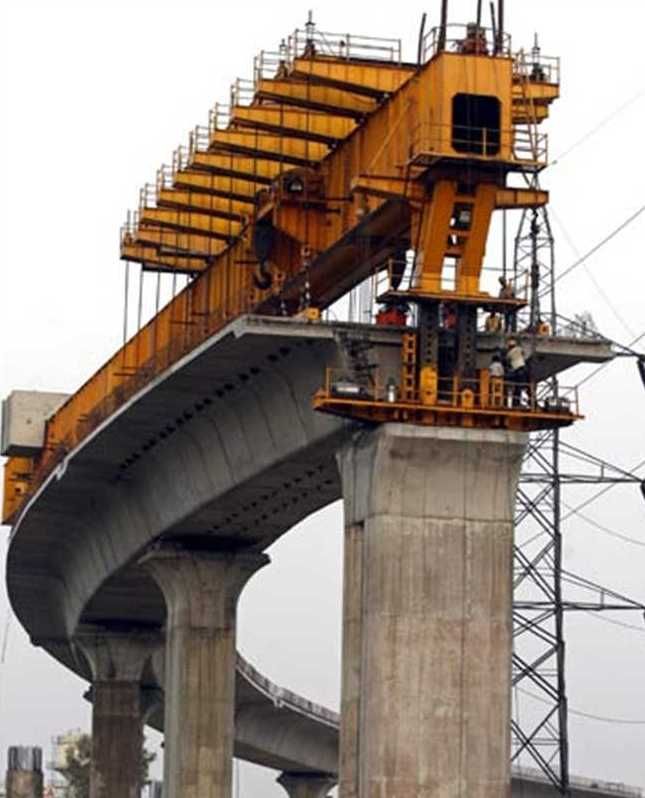
Metro Phase-II
Cost: Rs 25,605 cr (Rs 256.05 billion)
The Dahisar-Mankhurd line via Charkop and Bandra was awarded to Anil Ambani’s Reliance Infrastructure in 2009.
The company, which built a Metro between Ghatkopar and Versova after a long delay, entered into a concession agreement with the Maharashtra government.
But the project did not get environment clearance and there was no clarity on land for a depot.
In November 2013, Reliance Infrastructure terminated the pact with the government.
MMRDA says the project will be implemented by the Mumbai Metro Rail Corporation by 2019.
The corporation plans to fund the project by raising loans from international agencies, the Centre and the state government.
Metro Phase-III
Cost: Rs 23,000 cr (Rs 230 billion)
The marquee project was delayed due to lack of environment clearances and land acquisition.
The foundation stone was laid on August 26, 2014, after JICA promised Rs 13,000 cr. The project will be completed by 2019.
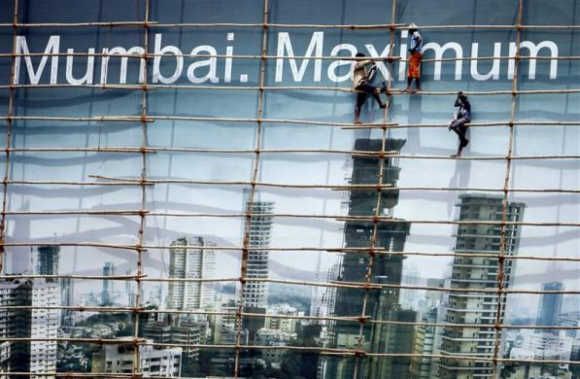
Worli-Haji Ali Sealink
Cost: Rs 5,000 cr (Rs 50 billion)
The concession agreement was signed between Reliance Infrastructure and the Maharashtra State Road Development Corporation in 2010. The then central government agreed to provide viability gap funding.
But the project was stuck as the then Congress-NCP government in the state could not decide between this and a coastal road project.
A decision is yet to be taken.
The government, in the meantime, is pursuing Rs 8,500-cr coastal road project connecting south and north Mumbai.
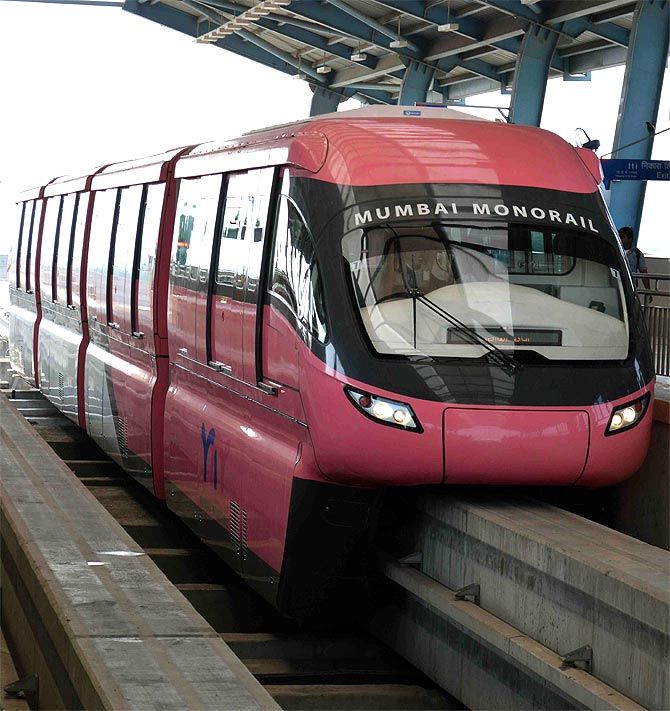
Mono Rail Project Phase-II
Cost: Rs 2,460 cr (Rs 24.6 billion)
Built by L&T, the first phase of the project between Chembur and Wadala started in February last year after missing almost three deadlines.
There were delays over land acquisition, right of way over Central Railway’s tracks and objections from Arthur Road jail authorities, who did not want the Metro to overlook the premises.
Phase-II is expected to be completed by December. The project will connect Chembur and Central Mumbai’s Saat Rasta,near Mahalaxmi.
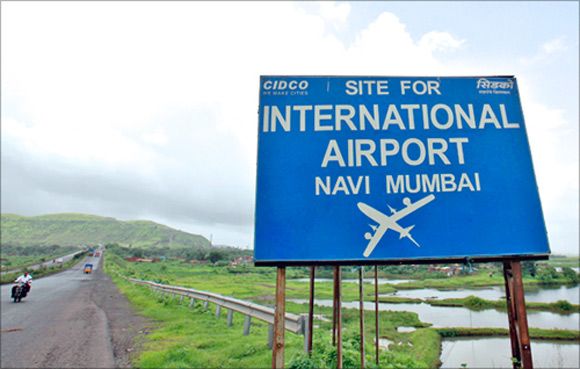 Navi Mumbai International Airport
Navi Mumbai International Airport
Cost: Rs 18,000 cr (Rs 180 billion)
Initially proposed in 1995-99, when the BJP-Shiv Sena, was in power, the project was stalled due to delays in environment and forest clearances and also due to opposition from villagers seeking higher compensation to part with their land. Most issues have now been resolved.
The City and Industrial Development Corporation, a state agency, has received offers from four consortia.
If the project takes off now, the first phase will be operational by 2019.





